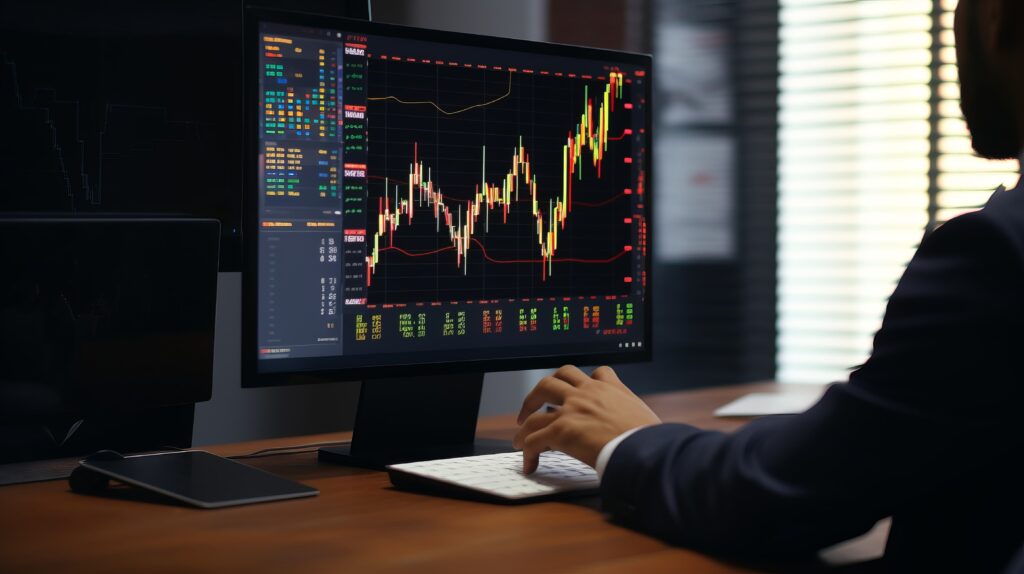Choosing between index funds and ETFs isn’t a decision to rush. Many people realize index funds vs etfs comes up frequently as new investors compare their simple, low-cost appeal. Not all investment vehicles work the same for everyone; your habits and goals matter just as much as the label.
This topic matters because your choice directly shapes how you experience investing. Transaction flexibility, ongoing costs, and even the way you access your money all vary. If you want to manage growth and risk, the details behind index funds vs etfs can truly influence your results.
Read on for a guide that delivers clear, relatable comparisons and actionable steps. You’ll learn concrete differences, see common scenarios, and spot what aligns with your investing style. This breakdown aims to help you confidently navigate the index funds vs etfs landscape.
Understanding Index Funds and ETFs: What You Actually Buy
Knowing exactly what you’re buying is the first step to choosing between index funds vs etfs. Both have the core mission to match a market index’s performance. Yet, how you access, buy, and sell your investment differs meaningfully.
With index funds, investors buy and redeem shares directly from the fund company, and prices update just once a day. By contrast, ETFs are traded all day through a brokerage, with prices shifting instantly like stocks.
Buying Mechanisms in Real Life
Imagine telling your friend, “I’ll buy into the S&P 500 after work.” If you use index funds, your order processes at the end of the trading day at that one set price. There’s no chance to react to midday swings.
If you prefer ETFs, you can log in at lunchtime, check the live price, and decide minute by minute. This flexibility lets you act quickly if market events shift your plan—great if you’re a hands-on manager.
Knowing your comfort with daily price changes clarifies whether index funds vs etfs suit you best. Some investors like the discipline of daily pricing; others want ongoing market access and transparency.
Scenario: The Planner vs. The Opportunist
Think of investing styles as personalities. The Planner likes to “set it and forget it,” sticking with monthly auto-deposits and appreciating market averages. An index fund fits that mentality perfectly, so no daily screens required.
The Opportunist enjoys scanning prices during market hours, maybe scooping up shares on a dip. ETFs deliver the tools for this kind of daily fine-tuning, matching someone who wants options to act, not just react.
Both investors succeed when their strategy aligns with product features. Recognizing your own style is step one in choosing wisely between index funds vs etfs.
| Feature | Index Funds | ETFs | Which To Pick? |
|---|---|---|---|
| How Shares Are Traded | Bought or sold once a day | Traded live during market hours | Prefer hands-off? Index funds. Want control? ETFs. |
| Minimum Investment | Can be $250+ per fund | Buy just one share, sometimes less | Starting small? ETFs win. |
| Pricing Transparency | Midday prices invisible | See the up-to-the-second price | Watch prices? Choose ETFs. |
| Automatic Investing | Straightforward—all major brokers offer it | Some brokers allow, but limited | Want autopilot? Index funds excel. |
| Tax-Efficiency | Efficient, but less so | Superior structure for low capital gains | Tax-conscious? ETFs lead. |
Cost Comparison: Fees, Spreads, and Unexpected Expenses
You’ll want every dollar to work toward your financial goals. Comparing costs between index funds vs etfs heads off surprises. Expenses like fees and bid-ask spreads shape your long-term outcome more than you might expect.
Index funds usually have minimums to start and a single, easy-to-see expense ratio. ETFs also charge expense ratios, but may have brokerage commissions or tiny price gaps called spreads. Understanding these differences eliminates guesswork around where your money goes.
Digging Into Expense Ratios
The expense ratio is your core cost. For most index funds, this stays reliably low—sometimes 0.05 percent or less. ETFs tackle low costs, too, frequently at a similar, ultra-thin fraction.
Both vehicles aim for frugal management; your long-term returns can benefit from trimming this single number. Check it before buying, since fractions of a percent add up over decades.
- Look for funds or ETFs with expense ratios under 0.2 percent to minimize costs as you grow wealth over decades.
- Check if your broker charges commissions on ETF trades to avoid unnecessary fees that can eat into returns over time.
- Compare bid-ask spreads for ETFs. Narrow spreads save money on each trade, making a difference for frequent traders.
- Watch for index fund minimums. Consider ETFs if you want to start small or diversify without meeting big thresholds.
- Reinvest dividends automatically using index funds or select brokers that offer this feature for ETFs to boost growth effortlessly.
By following these tips, you maximize what stays in your account. Small changes in cost structure have long-term effects on how quickly your investments compound.
Spreads and Premiums—Active vs. Passive Costs
When buying ETFs, you face a bid-ask spread—the tiny gap between what buyers will pay and what sellers want. That gap, if wide, is an invisible cost for anyone who trades frequently.
Trading during low-volume periods can make the gap wider. Use limit orders to protect against overpaying, especially in fast-moving or lightly-traded ETFs.
- Choose highly traded ETFs where spreads are minimal, saving you on every purchase and sale, making trading more cost-effective.
- Time ETF trades for peak market liquidity, usually mornings and early afternoons, to secure the best prices available in the market.
- Use market orders with index funds, as trading happens just once a day, with zero spread impact—ideal for simplicity.
- Manage fund turnover. Lower turnover in both vehicles means less taxable events and fewer internal costs draining your returns.
- Pick funds tracking broad indexes for stability—the broader the asset pool, the harder it is for costs to erode performance.
Index funds vs etfs both drive cost efficiency but in different ways. Matching your trading habits with the right product unlocks more net investment growth for you.
Managing Taxes and Withdrawals: Timing Makes a Real Difference
Bringing home more of your returns means understanding how index funds vs etfs interact with taxes and withdrawals. The mechanics of each product affect your tax liability and the logistics of pulling money out.
ETFs have a favorable reputation for tax efficiency, thanks to the creation-redemption process. Index funds have a solid track record, but may realize capital gains slightly earlier in some situations.
Tax Impacts in Day-to-Day Investing
Taxable accounts benefit from ETFs’ structure, which enables in-kind redemptions. That keeps taxable events inside the fund to a minimum, so fewer surprises land at tax time.
Long-term buy-and-hold investors see little practical difference between index funds vs etfs if only selling when needed. Yet during big in- or outflows, ETFs typically shield you from shared tax bills.
Both offer tax-sheltered choices—think retirement plans—where tax advantages are even. Use either when building IRAs or 401(k)s where tax timing matters less.
Withdrawing Cash: Which Process Suits Your Needs?
ETFs offer swift access: Sell any time the market is open, and your sale happens within seconds. This flexibility means you can move cash quickly if emergencies strike during trading hours.
Index funds process redemptions only after the market closes. Plan ahead if you expect to need cash but don’t want to lose a day waiting.
Modern brokers streamline both processes—you’ll still factor in price changes for index funds if withdrawals need precise timing.
Aligning Investment Goals With Each Option’s Strengths
Every investment decision works better with a clear goal in mind. Index funds vs etfs line up differently depending on whether you want long-term growth, regular income, or flexibility for future plans.
Think through your destination—like “retire comfortably” or “save for a down payment”—and use that to shape vehicle choice. Each has strengths that match a given aim.
Building for Growth Over Decades
Investors looking for straightforward compounding often gravitate toward index funds. Their reliable structure, simplicity for automatic contributions, and broad market exposure ease the focus on steady, patient accumulation.
Consider the role of index funds when saying, “I’m ok letting this run for 15 years without tinkering.” Their one-price system makes it easy to automate and ignore the noise for serious growth.
ETFs also serve long-term holders well, particularly those who want occasional flexibility. Just factor in potential trading temptations and set rules to avoid undermining your plan.
Getting Income With Minimal Hassle
If you prefer living off dividends or making regular withdrawals, both index funds vs etfs deliver. The difference lies in ease of cashing out and setting up distributions.
ETFs pay out dividends quickly, and you can sell anytime for cash. Index funds, however, offer direct deposit of distributions, taking one extra task off your plate every payout period.
For those needing immediate cash, ETFs win. For those who prefer everything on autopilot, index funds keep it smooth and simple.
Practical Steps to Choose: A Checklist for Every Investor
Turning information into action means running through a simple checklist. Here’s how to decode index funds vs etfs for yourself—using your needs, not anyone else’s opinion, as the north star.
Whether you’re a beginner or scaling up, these steps help clarify where each type fits. Make each decision based on your habits, resources, and plans.
Identifying Your Investing Habits
Track how often you check or change investments. If you barely glance at the market each month, index funds streamline your experience. For those glued to real-time prices, ETFs might match better.
Ask yourself, “Do I want to automate everything?” Index funds generally offer broader auto-invest options, while ETFs can require manual trades in many settings.
If you plan frequent contributions or withdrawals, know which channels your broker supports for both products before committing.
Evaluating Account Types and Broker Features
Check whether your brokerage charges commissions on ETF or index fund trades. Zero-commission options make either path much easier on your wallet.
Confirm minimum investments for each fund. ETFs let you start with single shares, while some index funds set higher entry bars. Match this with your starting balance and intended contributions.
Look for user reviews or ratings that call out strengths and weaknesses. Sometimes, brokerage-specific quirks mean one approach is more convenient than the other where you already bank.
Case Studies: Real-World Scenarios Comparing Index Funds and ETFs
Seeing real-world examples clarifies the differences between index funds vs etfs. Review two scenarios side by side to see how tradeoffs influence results. Copy the attitude or plan that matches your future outlook.
Consider Sam. Sam invests $500 each month, loves simplicity, and never wants to log in outside payday. Index funds, with easy automation, make that routine possible—Sam rarely needs to touch his account.
Scenario 1: Portfolio Growth for a Passive Saver
Lisa prefers more control. She wants to buy during dips—quoting, “If I see a good price midday, I’m buying.” For Lisa, ETFs let her act immediately. She even sets price alerts for favorite funds.
Sam’s account grows through automatic investments; his only action is updating contributions once a year. Lisa checks markets several times a week, ready to respond, and uses stop-orders for protection.
Both win by aligning investments with personality and schedule—showing why a tool that fits you is the smartest choice in the index funds vs etfs discussion.
Scenario 2: Income Hunters and Emergency Cash
Jessica needs income. She relies on dividends for bills and wants minimal steps to access payouts. Both tools pay dividends, but index funds let her route cash directly—one less task, matching her autopilot goal.
Chris faces an unexpected expense. He needs to sell quickly and get funds fast. Because ETFs trade throughout the day, Chris sells before lunch and knows the price immediately. The speed and transparency settle his nerves.
Think through your own scenarios before picking. Whether for autopilot, control, or rapid access, these stories map to real-life investing needs and solutions.
Making Your Decision: Personal Fit Beats Hype
Reviewing the facts about index funds vs etfs boils down to matching tools to your habits. You’ve seen how pricing, costs, taxes, and convenience differ in actual investor experiences.
Let your routine and risk tolerance lead your choice. The best product isn’t universal; it’s the one you’ll stick with month after month and year after year.
Before launching your first buy, walk through each task—researching, trading, withdrawing—using the account or broker you prefer. Practicing steps in real time makes your decision tangible and grounded.


